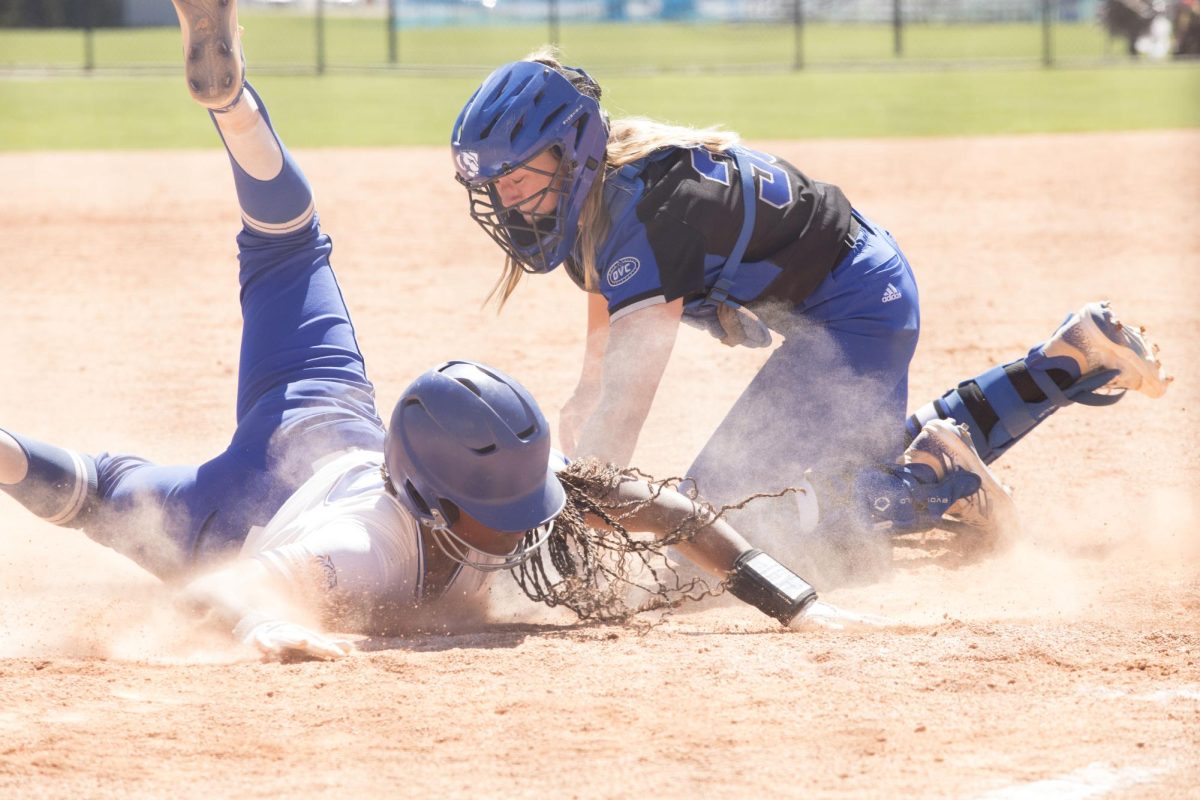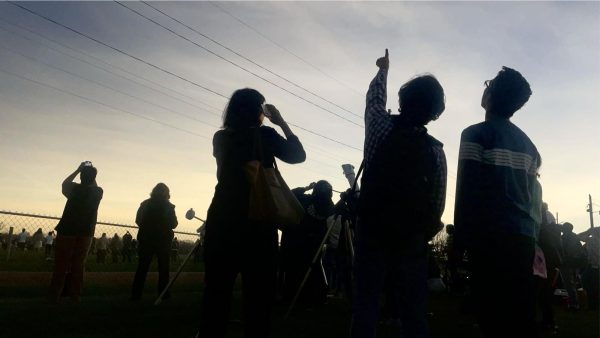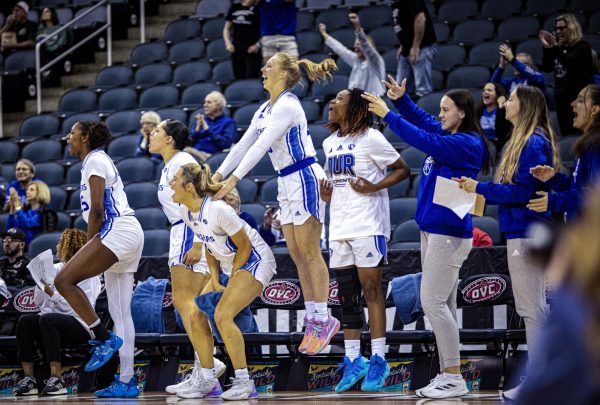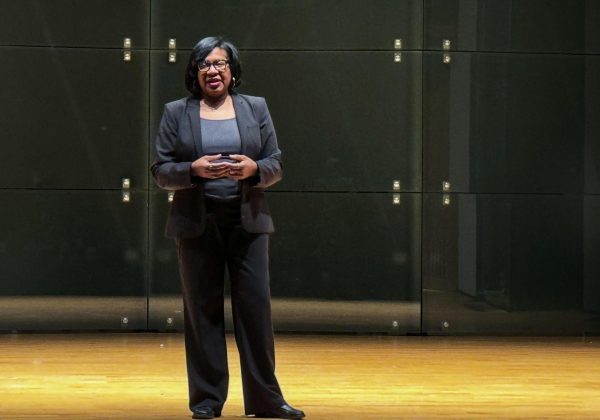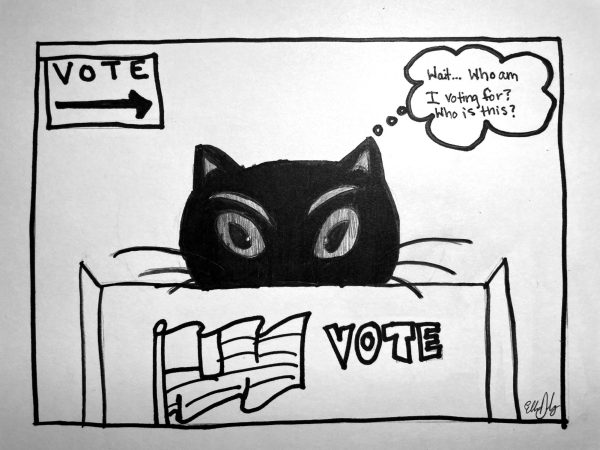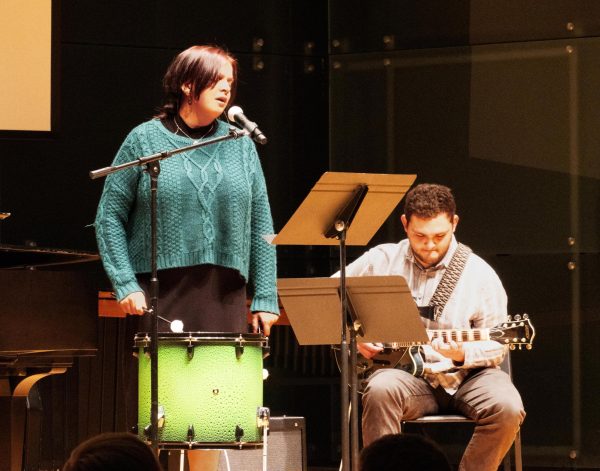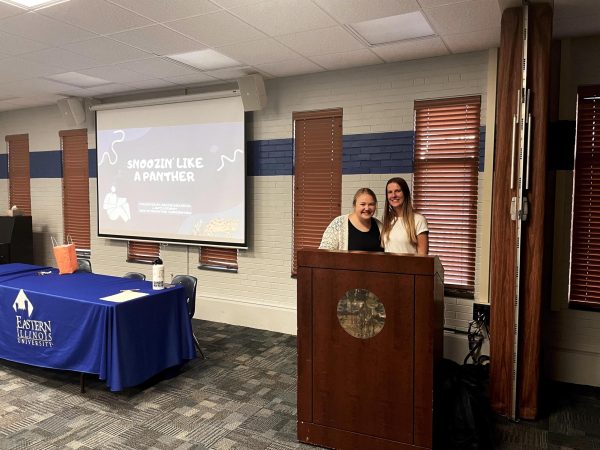Accepting yourself is the mark of maturity
January 21, 2018
The older I get, the less I feel inclined to achieve the degree of the “perfection” my peers, society and the world deems mandatory. The less I feel inclined, the more I cringe thinking about how much I used to care about what people thought of me.
Having insecurities is a part of being human. They can feel as though they run as deep as the threads of DNA that are embedded through every inch of our bodies, or they can feel like they barely touch the surface of our minds. Either way, these insecurities leave some sort of footprint that makes an impression on us.
For me, my biggest insecurity used to be my voice. If you have ever heard me talk, it is no secret: my voice falls under the lowest female alto category and has a habit of carrying over any and all noise, no matter the volume of the commotion going on around me.
When I was younger, my voice was something I loved. I took pride in being the loudest child on the playground. I felt content every time one of my teachers told me they could hear me laughing or chatting from the other end of the hall. I felt like my voice was one-of- a-kind, and therefore, I was too.
The insecurity in my voice manifested when I entered high school.
Freshman year, third period, gym class. The September heat made my gray cotton gym shirt even more uncomfortable and frumpy than it was already. The freshman and sophomore gym classes combined to play a 16-inch softball game. To our gym teachers, this was the perfect Friday treat to end the week on a good note. To me, this was a battle that I knew myself and all of the rest of my young, terrified and unathletic team would lose.
Just as I had predicted, the freshmen were losing and the sun was not giving us a break either. The 44- minute class period was starting to feel like 44 years, and I thought I would never get out of the outfield alive.
I shared the outfield with a 14-year-old boy who was the poster child for “I take high school gym class way too seriously.” With every home run the sophomores hit and every play the freshmen messed up, the kid would respond with a colorful array of words. At this point in the game, his face was so red from heat exhaustion and anger I thought his head was about to explode.
The sophomores scored another run and that was the last straw for the kid. His reactions had become more and more ridiculous and to save whatever shred of dignity the freshman team had left, I told him to calm down and we would have another chance to play sometime during the semester.
The last thing you should ever tell anyone who needs to calm down is to calm down. That is one of the most basic rules of thumb. However, I did not expect my mistake to encourage him to respond with, “Are you serious? The girl with the deeper voice is telling me to calm down? Are you a transgender? You sound like a man.”
My gym teacher, who was witnessing his meltdowns escalate, had finally made his way over to the outfield. He heard what the kid said to me as clearly as he could see my face flush and eyes water.
After that day, I viewed my voice as a flaw. It was something I was no longer proud to have—it was something I wanted to change.
It was not until I started college that I regained confidence every time I spoke. My broadcast teacher told me that my deep voice was smooth and great for radio. My peers have told me that I sound like Donna Pinciotti from “That ‘70s Show,”one of my favorite female television characters. My friend’s mom tells me I should audition to do voice-overs for commercials and audio tapes every time she sees me.
When I think about that day, I am not mad at the 14-year-old boy from gym class. Immaturity and frustration led him to making that comment. I have faith he has changed, matured and become less intense about gym class in the six years since then.
I am mad at myself for wasting so many years letting the words of someone change how I felt about something that I used to love about myself so much.
Most of the time, the things we are insecure about are the things that make us the most unique. These things are impossible for us to change and impossible for others to replicate.
Whatever it is that makes you different—your voice, your hair, your skin, your style—love it. It is what makes you an individual.
Carole Hodorowicz is a junior journalism major. She can be reached at 581-2812 or [email protected].











